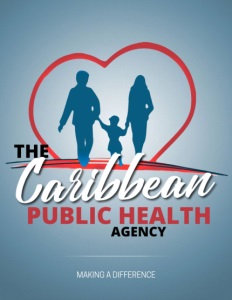The Caribbean Public Health Agency
Making a Difference
Business View Caribbean profiles Caribbean Public Health Agency, with a one-one-one interview with Executive Director of CARPHA, Dr. C. James Hospedales.
The Caribbean Public Health Agency (CARPHA) was established in July 2011, and began operation in January 2013. It was created by 24 countries and territories in the Caribbean by combining the functions of five Regional Health Institutes (RHIs) into a single agency. They are: The Caribbean Environmental Health Institute (CEHI), The Caribbean Epidemiology Centre (CAREC), The Caribbean Food and Nutrition Institute (CFNI), The Caribbean Health Research Council (CHRC), and The Caribbean Regional Drug Testing Laboratory (CRDTL).
CARPHA brings these RHIs together as one strong force under a public health umbrella under which issues requiring a regional response can be addressed. These include:
- Emergency responses to disasters (hurricanes, earthquakes, flooding, volcanoes)
- The surveillance and management of non-communicable diseases (NDCs) that have reached epidemic proportions such as obesity, cancer, heart disease, and diabetes
- The surveillance and management of communicable diseases (CDs), including HIV/AIDS; re-emerging diseases, like tuberculosis in association with HIV/AIDS; and new communicable diseases that are now endemic in the region
- The surveillance and prevention of injuries, violence, and job-related illnesses
- Contribution to global health agreements and compliance with international health regulations
CARPHA is the Caribbean region’s collective response to strengthening and reorienting its health system approach so that it is equipped to address the changing nature of public health challenges. The approach is people-centered and evidence-based.
The objectives of CARPHA are:
- To promote the physical and mental health and wellness of people within the Caribbean
- To provide strategic direction, in analyzing, defining, and responding to public health priorities of the Caribbean Community
- To promote and develop measures for the prevention of disease in the Caribbean
- To support the Caribbean Community in preparing for and responding to public health emergencies and threats
- To support solidarity in health, as one of the principal pillars of functional cooperation in the Caribbean Community
- To support the relevant objectives of the Caribbean Cooperation in Health (CCH).
CARPHA’s core funding is derived from country quota contributions from Caribbean Community Member States: Anguilla, Antigua and Barbuda, Aruba, The Bahamas, Barbados, Belize, Bermuda, Bonaire, St. Eustatius, Saba, The British Virgin Islands, The Cayman Islands, Curacao, Dominica, Grenada, Haiti, Guyana, Jamaica, Montserrat, Saint Kitts and Nevis, Saint Lucia, St. Maarten, Saint Vincent and the Grenadines, Suriname, Trinidad and Tobago, and The Turks and Caicos Islands; with additional funding provided by the Public Health Agency of Canada, The National Social Marketing Center, The European Union, the U.S. Centers for Disease Control and Prevention, and the Pan-American Health Organization (PAHO), plus some development banks. Its headquarters are in Trinidad with offices in St. Lucia and Jamaica.
The Executive Director of CARPHA is Dr. C. James Hospedales. Before coming to CARPHA, he was the Director of CAREC, and head of the non-communicable disease program at PAHO in Washington, D.C. Dr. Hospedales spoke recently with Business View Magazine about the agency. The following is an edited transcript of that conversation:
BVM: Dr. Hospedales, what are CARPHA’s major goals and what programs are in place to achieve them?
Dr. Hospedales: “The major goals are aligned with public health functions that are similar around the world. First, we maintain vigilance; we monitor the health of the region for any disease outbreak and what people are dying from, from year to year, and provide analysis of those trends and information. That’s a constant mission. Secondly, we’re much involved in emergency response to epidemics and disasters. Also, we’re the hub of the Caribbean laboratory network that joins up the whole region and shares information about disease patterns. We do a lot of training and capacity building of people in public health in the countries of the region. And we provide leadership in identifying and adapting solutions to problems that the region faces. Some of our leadership includes things like creating a new Caribbean regulatory system for pharmaceuticals and a tourism and health program. Those are niche things that the region needs that we are in a good position to provide as new, value-added services.”
BVM: Regarding epidemics, how did CARPHA respond to last year’s Zika outbreak?
Dr. Hospedales: “CARPHA responded as we do with other public health threats by activating its emergency mechanisms and teams because we foresaw that this might happen. We scaled up our laboratory capacity to meet the expected surge in testing requests from the countries, since this was a new virus we had not met, before. We issued advice to the countries, and worked closely with PAHO. We called a meeting with our heads of governments and presented the kinds of policies that needed to be pursued concerning public education and for controlling the environment to reduce the breeding of mosquitoes. We tracked the epidemic from country to country as it spread, and monitored insecticide resistance – a whole fleet of measures to prevent and control this type of outbreak.”
BVM: Does the fact that 24 countries are members of CARPHA cause problems in coordination?
Dr. Hospedales: “It’s a work in progress – how to orchestrate and get harmony from all these different parts and there are good signs that that is happening. The synergy between epidemiology and environment, between research and all the program areas are examples of that. We have 24 member states and they vary a lot in size and they vary, as well, in level of economic development. And even some that are economically very advanced, because they’re so small, they lack capacity, so we play the role of helping them meet some of that capacity. Within the 24, there are some natural groupings, like the Organization of Eastern Caribbean States (OECS), that has economic unity. But we have a long history of working cooperatively in health. There is this higher level, noble purpose of trying to improve people’s lives, prevent disease, protect and promote health that, over the years, has led the Caribbean to achieve a number of important milestones such as eliminating infectious diseases like measles and rubella. Another manifestation of working together is the deepening of the solidarity of the countries of the Caribbean regarding health. With that kind of spirit, you can tap into a lot of things, even though countries have different health situations, because we also have a lot in common: vulnerability to external threats, whether they’re manmade or natural (hurricanes, volcanoes, floods that the region is prone to); vulnerability to economic forces; vulnerability in terms of smallness. So, in the international scheme of things, the Caribbean is an interesting place. We’ve managed to work together in lots of things over the years and we’re setting a new set of aspirational targets.”
BVM: What are some of those targets for CARPHA over the next few years?
Dr. Hospedales: “Our goal is constantly trying to minimize disease and injury and promote and protect health. But over the next year or so, it’s to strengthen the food environment and nutrition security, which is an area that has been driving the epidemic of disease and avoidable costs in health services. In light of zika and other potential threats, it’s to strengthen and consolidate the mechanisms for coordinating multiple jurisdictions and for strengthening the laboratory capacity to back up threats to the region. So, I would say non-communicable diseases and making sure we’re prepared for infectious diseases.”
BVM: Any final thoughts for our Business View readers?
Dr. Hospedales: “Our job at CARPHA is to help underpin profitable, sustainable, competitive, good-quality businesses – tourism for example – by preventing disease and promoting and protecting health. If we, through our work in public health, can educate people and change policies, and change the environment, we’re contributing to a healthier, more productive workforce, saving government money, and reducing the upward spiral of healthcare costs. We’re doing our part to ensure a healthy, happy Caribbean. And it’s really needed.”




 This information will never be shared to third parties
This information will never be shared to third parties